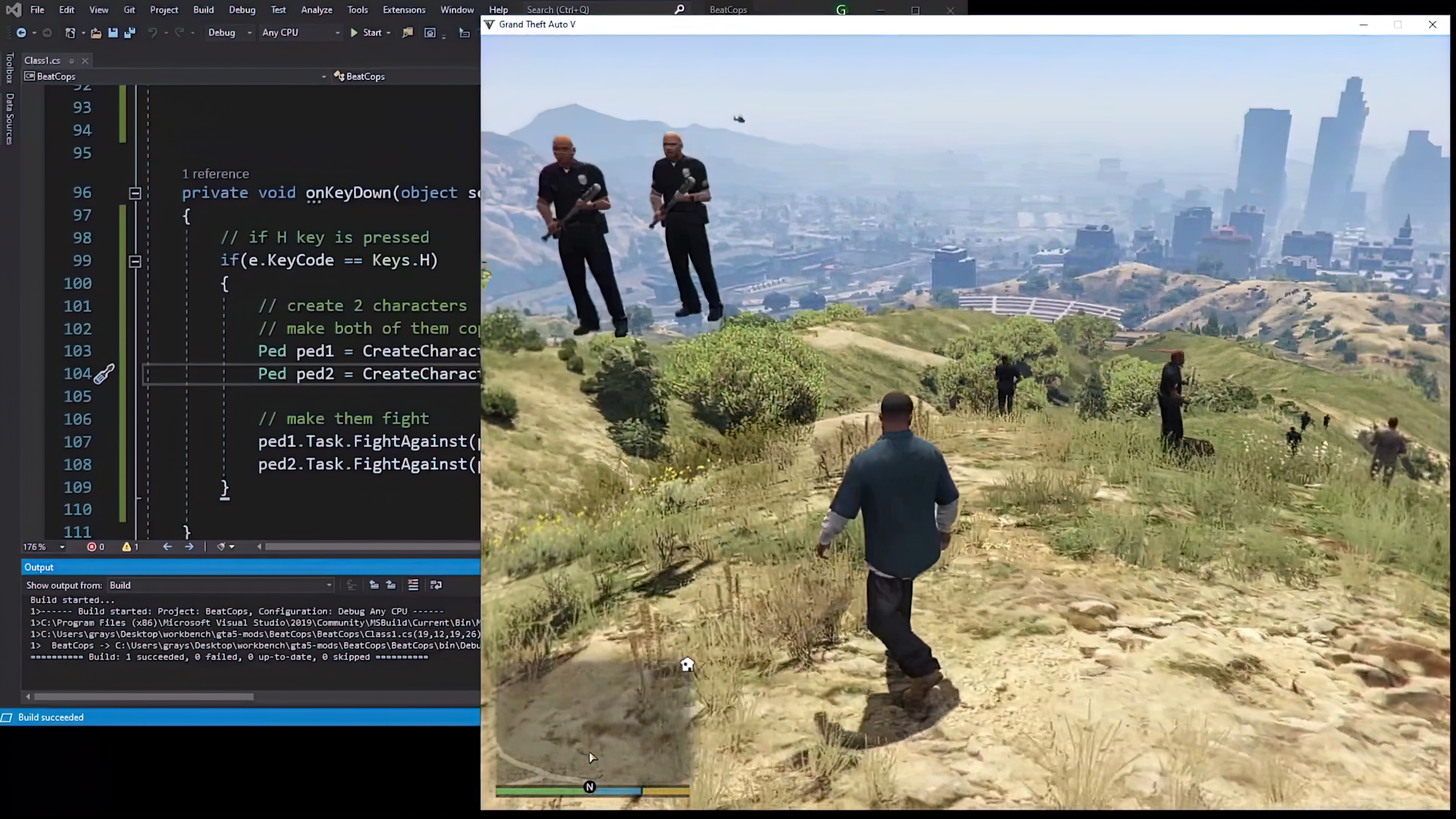As part of Melbourne International Games Week Film Series, ACMI’s curator Joni Maxwell presents three takes at AI’s effect on society, through the lens of machinima.
For the first time in Australian cinemas, a cutting-edge retrospective —curated by Jini Maxwell at the Australian Centre for the Moving Image (ACMI) in Melbourne — is set to challenge how we perceive video games in the context of sociopolitical landscapes. This showcase features three short films that employ screen-captured footage from popular video games Grand Theft Auto V and Battlefield to investigate the collusion between virtual and real-world politics.
The Year of the Robot is part of the Melbourne International Games Week Film Series, a three day cinematic and machinimatic tour de force situated at the intersections between video games and wider cultural phenomena. The series begins Sunday, October 1, featuring a dialogue between Summerfall Studios co-founders David Gaider, Elie Young, and Liam Esler, moderated by Jini Maxwell. The session celebrates the launch of their debut project, Stray Gods, a musical odyssey inspired by an array of multimedia influences ranging from television and cinema to stage musicals.
Continuing the program on Monday, October 2, is a screening of Andrew Bujalski’s cult movie Computer Chess (2013), a retro excursion into the techno-utopianism of the 1980s. Focused on an annual chess convention, the film captures the competitive spirit of software developers racing to create the ultimate chess algorithm. Notably, Computer Chess was filmed using a vintage tube video camera and employed non-professional actors with specialized knowledge in computer science.
Concluding the series on October 3 is the Year of the Robot screening, which includes three poignant short films that dissect how video games shape or are shaped by sociopolitical realities. Grayson Earle’s Why Don’t the Cops Fight Each Other? (2021) scrutinizes the coding of police behaviors in Grand Theft Auto V. Mathias Wolff’s It’s Just Math (2021) delves into predictive policing and its implications on Black, Indigenous, and People of Colour in Los Angeles. The program culminates with Total Refusal’s How to Disappear (2021), which contemplates the politics of combat desertion, using Battlefield (2002) as a case study.
Year of the Robot: Three machinima shorts
A machinima retrospective curated by Jini Maxwell
Part of The Melbourne International Games Week Film Series
October 3 2023
ACMI Museum
Federation Square, Melbourne, Australia
Featured Program
Why Don’t the Cops Fight Each Other?
Director: Grayson Earle
Year: 2021
Country: USA
Duration: 9’ 4”
Language: English
Format: Digital Cinema Package (DCP)
Grayson Earle’s groundbreaking work, Why Don’t the Cops Fight Each Other? (2021), explores the manifestation of the controversial "blue wall of silence" in Rockstar Games’ Grand Theft Auto V (2013). Over the span of nearly ten minutes, Earle conducts a desktop performance, capturing his meticulous efforts to deconstruct and modify the game's coding. Through this lens, Earle unveils how ingrained social structures influence police conduct within the virtual world, mirroring complex sociopolitical dynamics.
It’s Just Math
Director: Mathias Wolff
Year: 2021
Country: Germany
Duration: 29’ 52”
Language: English
Format: Digital Cinema Package (DCP)
Mathias Wolff's It’s Just Math (2021) takes viewers to the fictional city of Los Santos in Grand Theft Auto V to present an experimental documentary focused on predictive policing. Wolff delves into the significant impact of these predictive technologies on the lives of Black, Indigenous, and People of Colour (BIPOC) in Los Angeles. The film critically examines “Dirty Data” —data that is inaccurate, incomplete, or inconsistent — and discusses how its integration into predictive policing software perpetuates systemic biases against BIPOC communities.
How to Disappear
Director: Total Refusal
Year: 2021
Country: Austria
Duration: 21’ 6”
Language: English
Format: Digital Cinema Package (DCP)
In How to Disappear (2021), media collective Total Refusal adopts a pseudo-Marxist lens to scrutinize the political implications of combat desertion in both real and digital spheres. Positioned as an anti-war narrative, the film grapples with the ethics and potential avenues for peace within the adversarial environment of the multiplayer war game Battlefield (2002).






